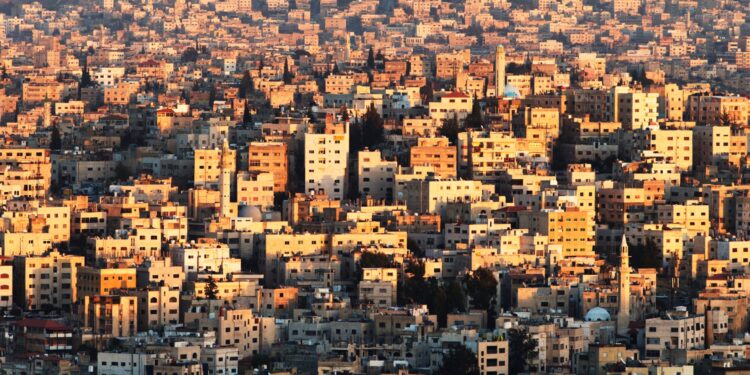Al -Jazeera Net Correspondents
4/19/2025–|Last update: 4/19/202505:13 PM (Mecca time)
Amman – The new building tax and land tax bill in Jordan has sparked widespread controversy in the popular and economic circles, amid the escalation of concerns about its potential repercussions on the cost of living, and accusations of the government of downloading citizens additional burdens, despite the latter’s assertion that the project is “reformist and just and does not include any new taxes.”
Parliamentary reservations and social fears
In the House of Representatives, the project is still under study, but the decision of the Parliamentary Economy and Investment Committee, MP Salem Abu Dawla, expressed reservations about some of its items, warning of its direct effects on citizens.
Abu Dawla told Al -Jazeera Net: “We discussed the project in three sessions in the presence of government agencies, municipalities, and representatives of the private sector. The project consists of 24 articles, and enters a new mechanism for estimating the tax, but there are still practical examples that we experience on apartments, complexes and buildings.”
“The land is not a commercial commodity, but sometimes it is inherited, and the citizen is unable to bear additional burdens. There are ambiguous items, such as canceling the knowledge tax that was designated for school maintenance, and transferring 30% of the outcome to the Ministry of Finance without clarifying the exchange entity.”
“No new taxes, but development and justice”
On the other hand, Amin Amman Youssef Al -Shawarba defended the law, stressing that it does not include the imposition of new taxes, but rather aims to modernize the tax system and promote justice.
Al -Shawarbeh told Al -Jazeera Net: “What is not accurate, the project does not impose new taxes, but rather enhances transparency and neutralizes the human element using technology, and for the first time includes exemptions and incentives for citizens.”
The absence of transparency deepens the trust gap
Economic analyst Munir Diyeli attributes this controversy to the lack of clarity in the texts, considering that the ambiguity of the project exacerbated the gap between the government and the citizen.
“The Jordanian citizen is accustomed to that every tax amendment is translated into a new burden, and despite the government’s denial of additional taxes, the absence of a complete clarification raises suspicion, and we need clear legislative pledges before the approval,” Diyea said.
A fundamental shift in the appreciation mechanism
Economist Mohamed Al -Bashir believes that the shift from estimate on the basis of the rental value to the market value of the property may lead to a tangible increase in the tax.
“Linking the tax to the market value and not to the return or use will lead to raising the cost to the citizen, especially in light of the fluctuation of real estate prices, and this will later affect the prices of goods and services, especially in the major facilities,” Al -Bashir said.
He added that “this amendment comes within a government policy aimed at raising revenues in response to the requirements of the International Monetary Fund and the payment of loans, and not to motivate the economy.”
“Collection” instead of reform?
For his part, economist Hossam Ayesh considered that the law expresses the continuation of a governmental approach based on collection instead of reform.
“The estimate is open to guessing, which opens the door to imposing taxes that exceed the true value of real estate, and it was better to impose a wealth tax on the largest investors who own huge real estate that generate profits and transform abroad, not to download the citizen who barely has an apartment that pays a thousand dinars annually, approximately 9% of the Jordanian family’s income,” Ayesh said.
Popular controversy and Article 12
On social media, questions focused on Article 12 of the draft law, which determines the tax categories as follows:
- 1 %of the annual estimated value of residential buildings.
- 3 %for non -residential buildings.
- 0.02 %of the land value exceeding 1000 m².
- 0.04 %of the land value of less than 1000 m².
Although the government described these ratios as fair and established for a more accurate equation, there are increasing demands to issue transparent official clarifications and make realistic models of the influence of the law on various categories, before voting in Parliament.



